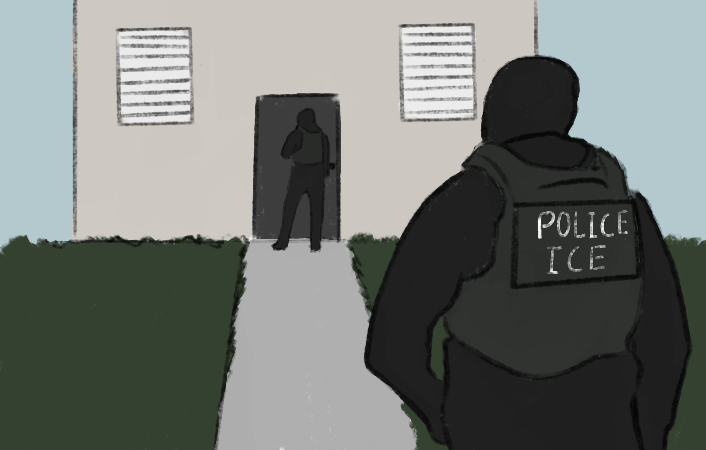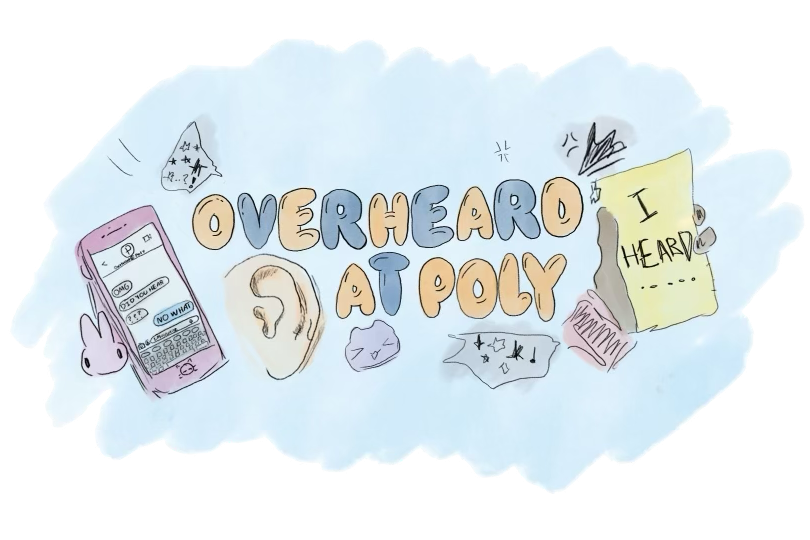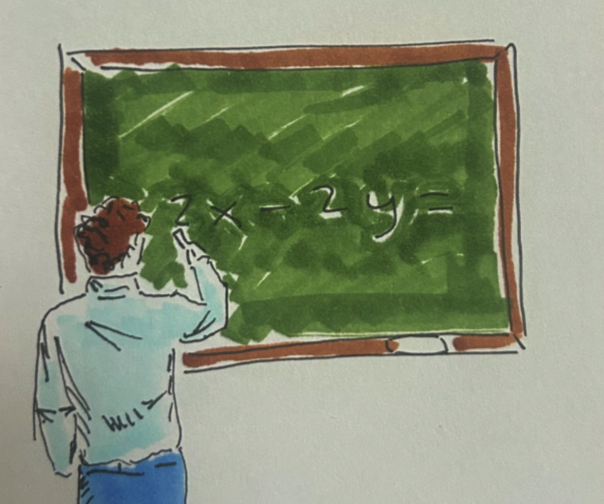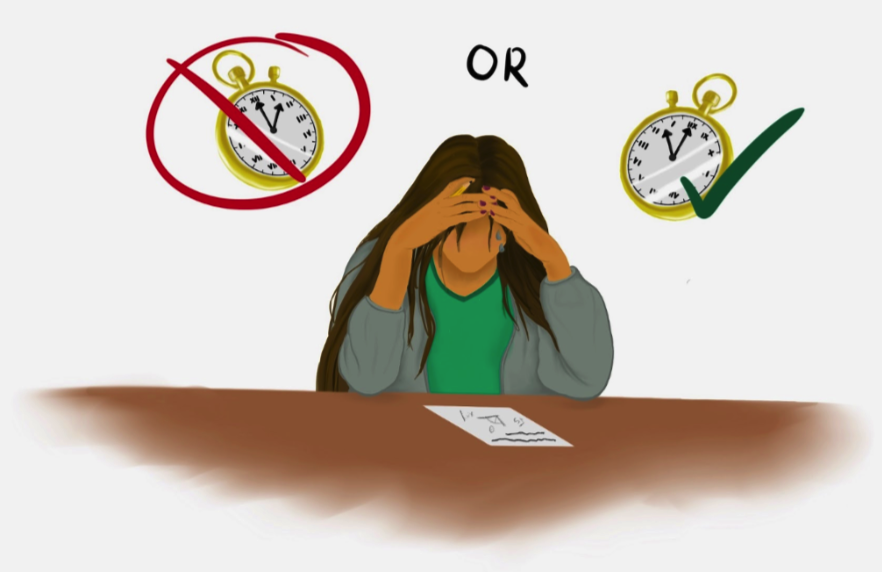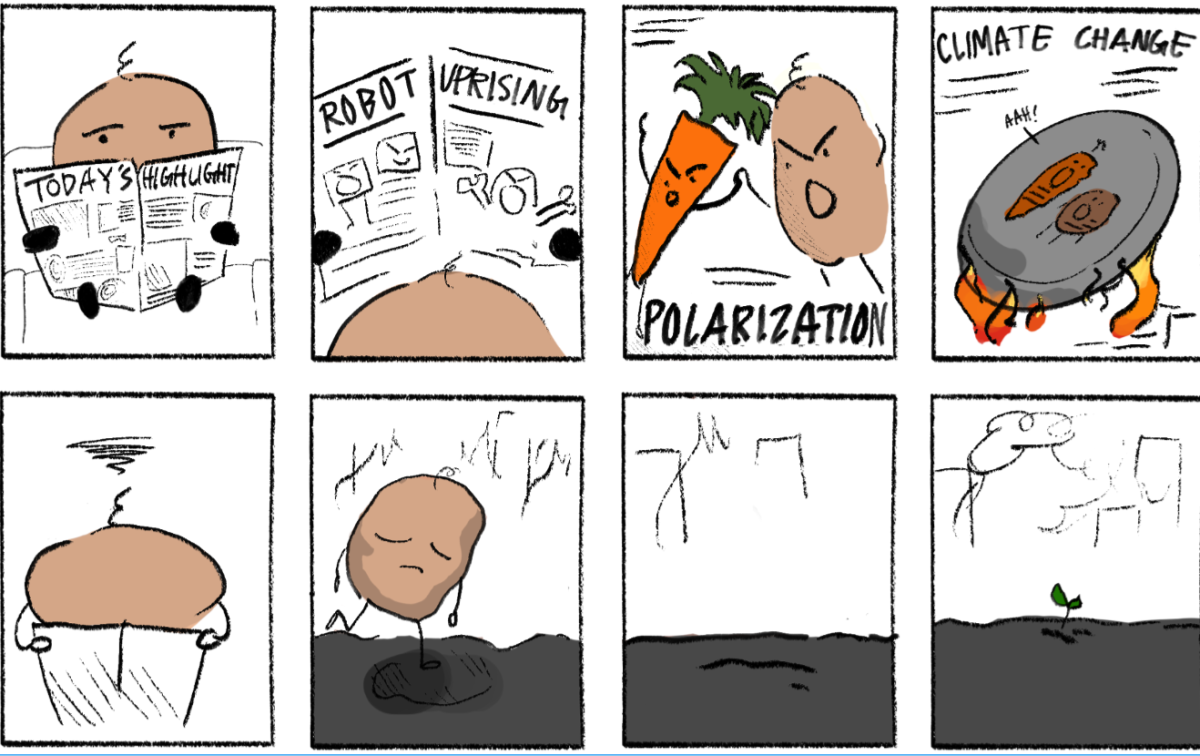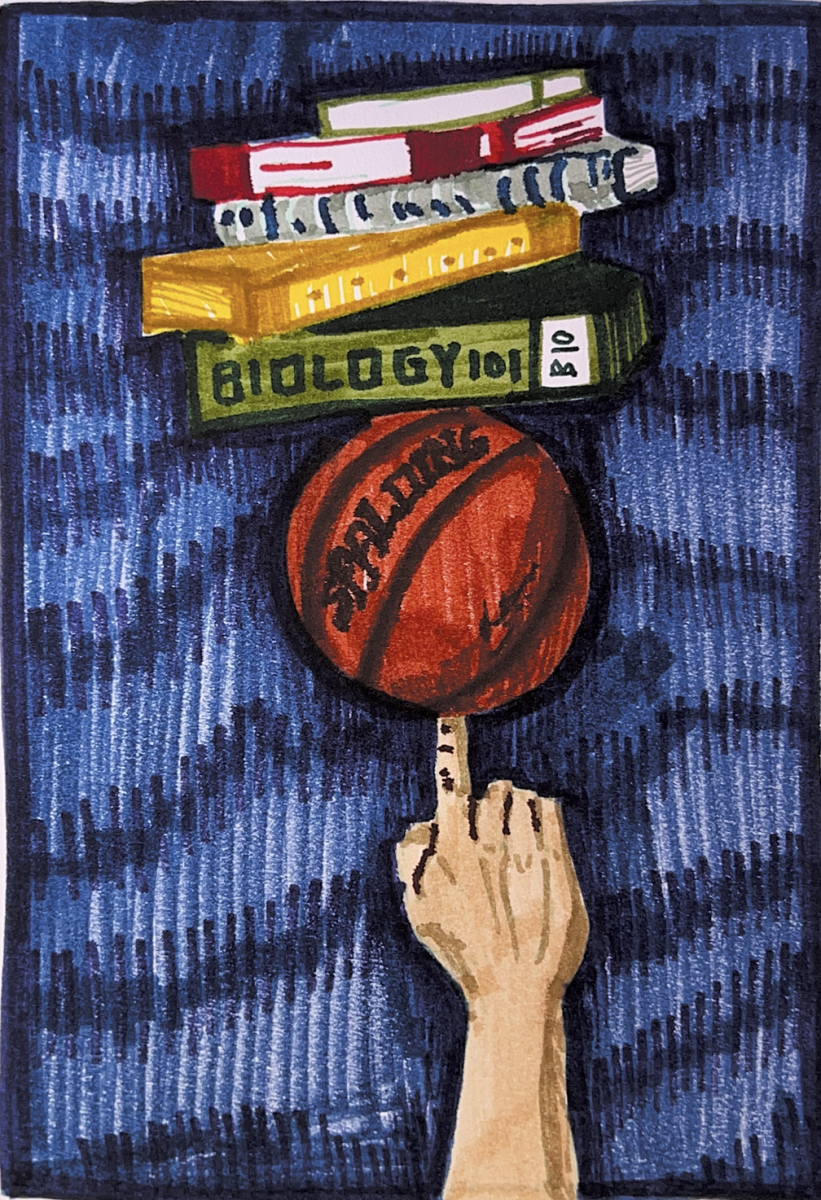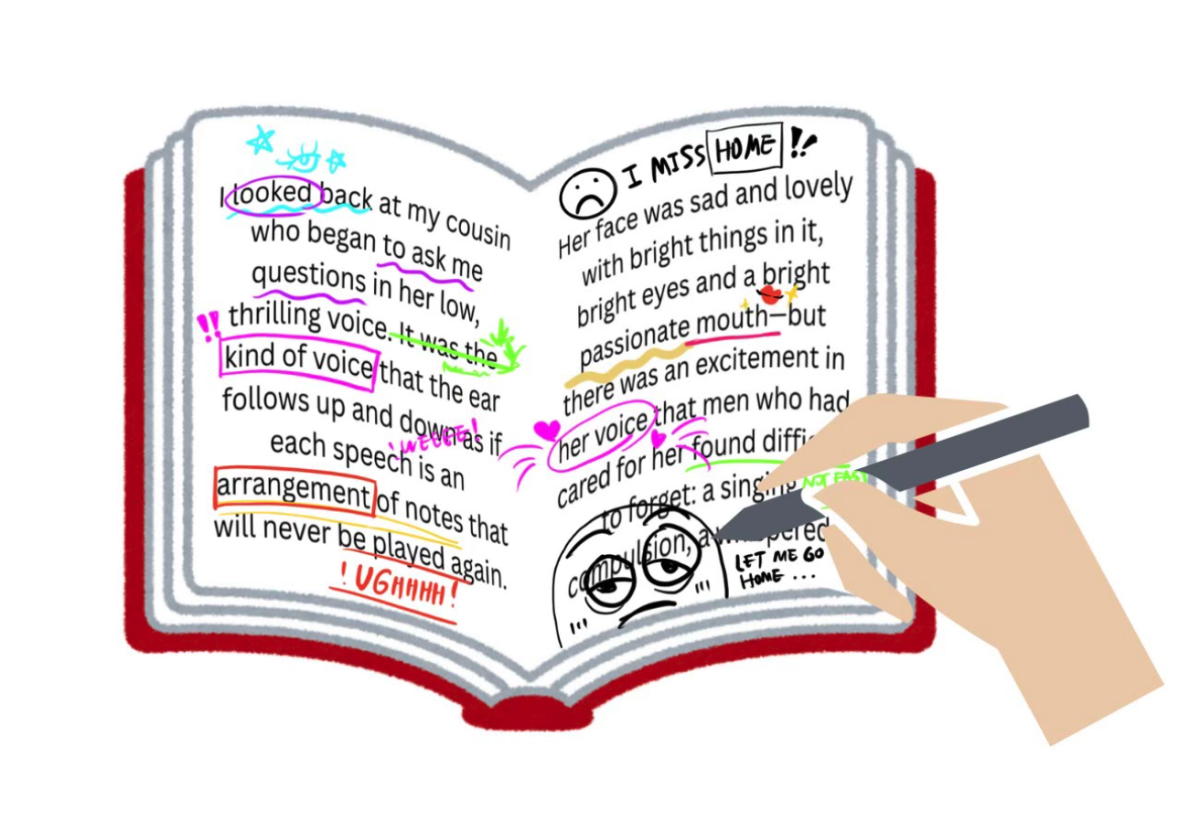If I were an author, I wouldn’t be one who lets their thoughts flow; I’d trap them in airtight metaphors and polish each sentence until it could pass as a riddle. Every word I write would have layers and layers of meaning. Nothing would ever be literal. I’d hate to see a comma just being punctuation. It should be a calculated pause representing dread. Thoughts should not appear fluidly on the paper. Rather, they should be formulaic. Every sentence I write would be overly polished, and every word would have a figurative meaning behind it. Of course, these words would have meanings beyond the ink and paper, but one, two, even three levels of analysis would not be enough to understand them. It would take more underlining, a couple of circles, some notes in the margins and ultimately an entire English class full of deeply profound adolescents dissecting my decisions to understand the text.
I’d be happy—not because I helped these students find joy in reading, but because every high school teacher in America would force students to buy my book for their class. The money I would make from this magnum opus would supersede any desire to write stories that people actually want to read.
I would bestow knowledge onto the next generation, and I would make sure that they walk away from reading my book not with a newfound appreciation for the plot nor with the satisfaction of relating to a protagonist overcoming a challenge; instead, they would understand how my calculated use of alliteration highlights my side character’s naïveté or how my integration of zeugma foreshadows the downfall of my protagonist, to name a few of the thousands of literary intricacies I would use throughout my story.
Sometimes, I dream about the day I will host a meet and greet for people to talk to their favorite author (me). Teachers would flock by my side to tell me how much they loved my book. Sure, they’d say that their students hated them for assigning it, claiming it induced migraines, but they had stood their ground, highlighting my “literary genius.” I’d pat these teachers on the head, thanking them for placing my book into their curriculum. After all, requiring their students to overanalyze my book is the only reason for my success.
What would bring me even more joy than a teacher who loves my book is a student who hates it. Students would tell me that they hated my book because they weren’t allowed to read freely. They’d say that my book sucked the fun out of reading—instead of being able to enjoy the character arc, they were forced to write annotation after annotation after annotation until the margins ceased to exist. Of course, I’d tell these naive children that this practice is more valuable than whatever quasi-intellectual wisdom I put in the book itself because it teaches the lesson that sometimes in life, we have to do things that we really, really don’t want to do.
Every time I would write, like all good authors, I would ensure that there was only one correct interpretation of my writing. After all, why would I spend so much time developing my characters and metaphors for someone to disagree with the theme I have been pushing forward through my layers of figurative language? Literature is straightforward: students get points for interpreting what I am trying to say correctly, and they lose points if they disagree with me. Even if students still don’t understand my book after being forced to read and annotate it into oblivion, they will take away an important lesson: the ability to fake understanding.
It’s well known that if a student enjoys reading a book, the book isn’t good. If that were the case, it would mean that their focus has been taken away from annotating. The real world isn’t all sunshine and rainbows, and as an author, it is my job to ensure that these young learners don’t get complacent. It’s a tough place out there, and without someone like me to teach these readers how to fall in line, they will fail. Reading, after all, should teach you how to conform and repeat, right? No boss likes someone who argues with them over their interpretation, but everyone wants an underling who affirms their overlord’s genius.


